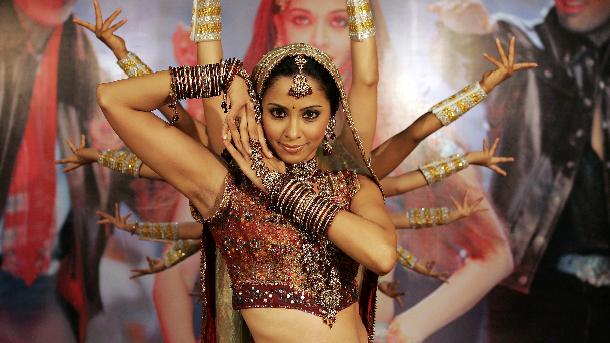My rite of passage to India, and a lasting foreign affair
I discovered a romanticised version of India in my final year of high school, and decided to claim it as mine.

You could call it serendipity or destiny. But at its essence was a casual browse through my mother’s reading pile on a grey Saturday afternoon in the outer west of Sydney during my last year of senior high school. I’d just returned home from private Alliance Francaise lessons with my tutor, Madame Capitaine. Seriously, you just couldn’t make up a name like that and, mon dieu, she could have led any army into battle. It was my parents’ wish that I would excel at HSC French, then do an arts degree that would lead to a career in foreign affairs.
My father, a former newspaper editor and diplomat, was very keen on this idea and thought it was time for a serious chat. It wasn’t clear to me what it all entailed, other than conversing in French at cocktail parties and learning to manoeuvre a flute of champagne in one hand and an unfiltered Gauloises in the other. But perhaps I would have actual affairs, too, preferably with someone who looked precisely like Alain Delon. Or Jean-Paul Belmondo, at a pinch.
But as Dad banged on about the future he’d mapped out for me as an international envoy, I continued flipping through Mother’s latest library loans, eyes almost glazed with boredom, and there it was: The Rains Came: A Novel of India by Louis Bromfield. The blurb instantly entranced: “In the town of Ranchipur, four people find their lives become entwined by unexpected feelings and events.” I read it by torchlight under the bedcovers that night. I thought I would stop breathing if I didn’t get to Ranchipur. No matter that it was a fictional princely state.
I had discovered a romanticised version of India, a place my globetrotter parents had never visited and would surely be aghast if they did. What’s more, the Brits had had their hands on it and English would be widely spoken. I decided I would claim India as mine. I hid the book a week or so later so it would be ready to pack in my port. Mother had to pay a library fine. The deception had begun.
Via a series of elaborate fibs about broadening my horizons and a touch of serendipity, I convinced Mother and Dad that I should go to India and they permitted me to take off a few months after HSC graduation with a friend from riding club who had close relatives in the then Bombay. We would stay with those family members and I would accordingly be supervised by my pal, said Dad, which was a hoot as she was even sillier than me. We would stay for a holiday and learn about foreign things. Staff at the Australian high commission in New Delhi would be alerted by Dad of my visit and that I might or might not call the hotline for assistance during my gap year, or whatever it was called back then. Perhaps nap year would have been an option.
Said friend has since died and, rather than use her real name, let’s go for Anita. Less than a week after our arrival in Bombay, she contracted malaria and I’d been so comprehensively pickpocketed while the pair of us had been roaming about that Anita’s family gave me enough for a train fare to venture to the far north and, presumably, right out of their hair.
Anita recovered and returned to Australia within a few weeks. I had by then settled in Udaipur at a home stay near Lake Pichola and my kindly hostess efficiently garbed me in some of her cast-off clothing every day, as she said the “hanky-panky chaps” on the streets would follow me around if I looked too foreign and ask to practise their “romance talking”, and worse. I wore a salwar kameez, rather a lot of kohl rimmed around my eyes, jingle-jangle bangles and an adhesive bindi dot on my forehead.
My new Indian mother plaited my hair every morning and popped in skeins of jasmine. “You are a local now,” she’d tell me, approvingly. And I did fit in, at least on a superficial level, with an utterly unknown culture, so rich and vibrant and full of stories and music and laughter.
I would shoo off the hanky-panky chaps, all of whom could sense in a flash I was foreign, with an imperious wave and indulge in so many tooth-achingly sweet gulab jaman confections from the markets daily that it’s a wonder my new silken trousers didn’t burst.
I wrote awful short stories and many overly emotional postcards and watched Hindi soap operas on a tiny flickering TV set. I’d call home occasionally from an IDD (international direct dialling) phone booth, for which a chit had to be purchased and rubber-stamped, then you’d queue up for your turn and ring the number. We had no answering machine and, mostly, my parents wouldn’t be home or, if they were, it’d be Mother who picked up and over the hiss and crackle of the line it always sounded as if she said, “Who are you?” Surely it must have been “How are you?” but every time it made me wonder, on an existential level, just what unknown person I had become.
Even now, after a long career in journalism that has centred on travelling and kept me in almost perpetual motion, I look back at that sliding doors moment in a dull suburban house. Why did I pick that particular book? Was it just the idea of a place, however made-up, where Indian princes in bejewelled turbans swept bored expat women with names like Edwina off their feet and into their arms? What if I’d capitulated to my parents’ carefully mapped-out plan for my future? If so, surely I wouldn’t be this vagabond who has lived and worked in Tokyo and Hong Kong, honeymooned in Hawaii, travelled along the Nile and the Congo and the Sepik, appeared as an extra in a Bollywood movie, and on my 30th visit to India, in 2004, lived for months in Shimla, in the hilly state of Himachal Pradesh, at the house of a retired prince named Reggie, to write a Raj-era romance novel about a British meteorologist and a larger-than-life Bombay-born cinema owner. It was published shortly before Dad died and the copy I found on his bedside table had been marked by him in blue pencil on almost every page. He’d crossed out at least a third of the adjectives.
As for France, I did reside there briefly one long-ago summer between newspaper jobs. I was holed up in a Left Bank garret so tiny I could open the door without getting out of bed. There was a rascal of a married lover, of course. There always is in Paris. However, he did more than Madame Capitaine and all those costly private lessons could ever have achieved. Jean-Luc taught me the language of foreign affairs.
Susan Kurosawa has led The Australian’s travel coverage since 1992.




To join the conversation, please log in. Don't have an account? Register
Join the conversation, you are commenting as Logout